Improving Flu Vaccination Uptake: 2023/24 Toolkit for GP Practices
This toolkit provides guidance for GP practices in South West England on improving flu vaccination uptake for eligible children and adults. It includes strategies to increase vaccination rates, setting up flu programmes, recalling patients, and maximizing opportunities to co-administer vaccines. The toolkit reflects national flu guidance and uses evidence-based approaches to enhance vaccination uptake among different cohorts. It emphasizes the importance of personalized invitations, maintaining up-to-date patient registers, and targeting underserved groups to address health inequalities.
Download Presentation

Please find below an Image/Link to download the presentation.
The content on the website is provided AS IS for your information and personal use only. It may not be sold, licensed, or shared on other websites without obtaining consent from the author. Download presentation by click this link. If you encounter any issues during the download, it is possible that the publisher has removed the file from their server.
E N D
Presentation Transcript
Flu vaccinations 2023/24 Toolkit for GP Practices: Improving uptake for eligible children and adults South West Vaccination and Screening Team NHS England South West England.swicars@nhs.net
About this toolkit This toolkit reflects guidance from the national Flu Letter and uses evidence from a study into factors associated with higher flu vaccine uptake1. High-performing practices will already use several of these tools and follow good practice for encouraging high uptake of the flu vaccine in their setting. If you need further guidance, please contact the South West Screening & Immunisation Team: england.swvast@nhs.net. For clinical vaccine queries, please email england.swicars@nhs.net 1 Dexter L et al. (2012) Strategies to increase influenza vaccination rates: outcomes of a nationwide cross-sectional survey of UK general practice. Image taken from The flu vaccination. Who should have it and why. Winter 2021 to 2022 (publishing.service.gov.uk) 2 | Flu vaccinations GP toolkit 2023-24
The basics Have a lead individual responsible for the flu programme this is your flu advocate for the season Hold an up-to-date and regularly reviewed register that can identify all eligible patients Checking phone numbers, addresses, including newly diagnosed patients, updating pregnancy status etc before and during the season. Keep checking eligibility during the season. Ensure all eligible patients receive a personalised invitation for flu vaccination by letter, phone call, text or email this is a requirement of the enhanced service specification If patients don t reply or attend, ensure you have a system for recalling non-responders remaining unvaccinated leaves these patients at risk of flu complications. Implementing a plan for practice staff to check if the patient has had their flu vaccination when speaking with them for other reasons (MECC) Continue to recall until you have an active decline. 3 | Flu vaccinations GP toolkit 2023-24
This years national ambitions Cohorts eligible 2023/24 Ambitions Systems should maximise opportunities to co-promote and co- administer (e.g.COVID-19, flu, shingles and pneumococcal) Children aged 2-3 Improved uptake from 2022-23 School aged children (Reception to Year 11) Achieve and ideally exceed 2022-23 uptake Clinical risk groups Improved uptake from 2022-23 GPs and school providers to demonstrate 100% offer to all eligible patients Pregnant women or people Improved uptake from 2022-23 Aged 65 and over Achieve and ideally exceed 2022-23 uptake Care home residents Achieve and ideally exceed 2022-23 uptake Health inequalities plan for all underserved groups and improvement in coverage in those groups who were more than 5% lower than the national average Carers Achieve and ideally exceed 2022-23 uptake Close contacts of immunocompromised Achieve and ideally exceed 2022-23 uptake FHCW without employer led OH schemes Achieve and ideally exceed 2022-23 uptake FHCW (though OH) including primary care Between 70% and 90% of staff 4 | Flu vaccinations GP toolkit 2023-24
Reviewing last season Check your uptake figures on Immform or through your practice system to see how you did last year. Identify what went well and where you could improve did clinics work or were appointments better? Set a higher goal for uptake than you achieved in the previous season. Unvaccinated eligible patients are at risk of the complications of flu challenge yourself to identify these patients and to make personalised vaccination offers. Think about your patients who didn t attend or respond is vaccination accessible, e.g. can clinic times be adapted for patients to attend before or after work, weekends and evenings? What do they need to enable them to attend? How did you talk to patients about their risk of flu? How else could you get the message about risk across and the benefits of vaccination? What was your uptake in the individual at risk groups? E.g. patients with chronic respiratory disease, chronic heart disease, COPD etc. Could you pay special attention to making invitations to those groups with the lowest uptake? Think about your patients who are most at risk and how to encourage their uptake. 5 | Flu vaccinations GP toolkit 2023-24
South West priorities National flu letter priorities: 100% offer to eligible groups Flu vaccinations for 2-3-year-olds and children in clinical risk groups must start from 1 September 2023 or as early as possible after the vaccine becomes available. This group must be prioritised early in the season to reduce transmission and ensure minimal impact on routine immunisations in the new year. Regional flu priorities: At risk groups: Focus on chronic liver disease, immunosuppression and chronic neurological disease 2 and 3 year olds Eligible school aged children in clinical risk groups at GP Practices School aged children (focus on primaries). Pregnant women and people Improving uptake in most deprived areas and ethnic minorities, especially in black communities Co-administration. National flu letter refers to co-administration with shingles, pertussis, or pneumococcal, awaiting further guidance on co-administration with COVID-19 Deliver operational plan priorities System priorities: Frontline healthcare workers 6 | Flu vaccinations GP toolkit 2023-24
Involving all practice staff Your staff are key to a successful flu programme. Make sure all staff in all roles understand the importance of the flu programme and the impact that flu can have on vulnerable patients. All staff should be advocates for flu vaccination. Make sure non-clinical staff know where they can signpost patients for more information in the practice. Take every opportunity to discuss vaccination with patients. Think about your MECC offer and how this can be fully incorporated. Ensure your staff are offered vaccination. Keep staff enthused during the season consider an incentive promoting staff competition. Utilising resources such as posters and leaflets around the practice. 7 | Flu vaccinations GP toolkit 2023-24
Pre-season checklist Make sure your practice staff are aware of the named flu lead or flu team within the practice. Ensure you have a list of your eligible population and have ordered sufficient vaccine considering your ambition to increase your uptake and anticipated population increase. Confirm you have the right vaccine for the right eligible groups. Vaccines for under 18s are ordered through Immform and there are caps on ordering, make sure you know how much you can order at a time. Utilise national letter templates for individual invites to patients: Annual flu programme - GOV.UK (www.gov.uk) Templates will be available nearer to the start of the flu season. Offer a range of appointments, day-time clinics, evenings, weekends as well as opportunistic vaccination. Make use of pop-ups on the practice system to remind staff that patients are eligible. Build in time for admin staff to undertake recall of patients who haven t attended or responded. Have plans in place for the vaccination of care home and housebound patients 8 | Flu vaccinations GP toolkit 2023-24
Vaccine recommendations by age Eligible group Type of influenza vaccine 6 months to under 2 in a clinical risk group Give QIVc (Cell-based quadrivalent influenza vaccine) off label use. If QIVc is not available give QIVe. 2 years to under 18 years in eligible year groups or in a clinical risk group If there are no contraindications to LAIV, give quadrivalent LAIV nasal spray suspension. If LAIV is contraindicated or otherwise unsuitable4, give QIVc. If QIVc is not available give QIVe. 18 years to under 65 years5 in a clinical risk group and pregnant women Give QIVc or QIVr. If QIVc or QIVr is not available give QIVe. Give aQIV5or QIVr. If aQIV or QIVr is not available give QIVc. 65 years and over 4 - If the parent of an eligible child declines LAIV because of its porcine gelatine content (and they understand that it is more effective in the programme than the injected vaccines), they can request an alternative injectable vaccine. QIVc is available to order from ImmForm for these children. 5 - Those who become 65 years of age before 31 March 2024 may be offered aQIV off-label . Information taken from: Flu vaccines for the 2023 to 2024 season - GOV.UK (www.gov.uk) 9 | Flu vaccinations GP toolkit 2023-24
During the flu season Prioritise 2-3 yr olds and at Risk Children early in the season from 1st September 2023. To maximise and extend protection during the winter and through the period of greatest risk in December 2023 and early January 2024, systems must commence vaccination for care home residents and care home staff from 2 October 2023, and other eligible flu and COVID cohorts from the 7 October. Monitor your uptake through the season regularly Keep the patient register up-to-date and proactively contact eligible patients who haven t attended Liaise closely with maternity services to ensure your pregnant patient list is up-to-date Hold regular meetings with staff so everyone knows the practice plan and progress. Make sure you celebrate your success. Use national resources to create colourful poster displays If a patient hasn t attended or responded recall! 10 | Flu vaccinations GP toolkit 2023-24
Which patients are most at risk Increasing flu vaccine uptake in clinical risk groups is important because of increased risk of death and serious illness if people in these groups catch flu For a number of years only around half of patients aged 6 months to under 65 in clinical risk groups have been vaccinated Strategies to improve vaccine uptake should be tailored to each risk group to ensure optimum uptake of vaccine in each of them. Further information on flu vaccination for those with learning disabilities can be found on the GOV.UK website www.gov.uk/government/publications/flu- vaccinations-for-people-with-learning-disabilities/flu- vaccinations-supporting-people-with-learning- disabilities Slide adapted from national imms team flu slideset found here: Annual flu programme - GOV.UK (www.gov.uk) 11 | Flu vaccinations GP toolkit 2023-24
Why dont some patients attend? A recent study looked at older people s attitudes towards flu vaccination. The study found that attitudinal barriers were significant in influencing flu vaccination. They broke attitudinal barriers down into two main types: Not everyone sees themselves as vulnerable to flu Not everyone believes that the vaccine works They found that patients knew that flu was a health concern and that being older meant you could be more vulnerable to disease, but this didn t translate into seeing themselves as vulnerable. Framing vaccination as part of a healthy lifestyle might generate a more positive response from older patients: presenting immunisation as a positive and healthy lifestyle choice (page 2) International longevity centre UK (2019) Under the skin: listening to the voices of older people on influenza immunisation. https://ilcuk.org.uk/wp-content/uploads/2019/05/ILC-Under-the-skin.pdf There is also a possibility of vaccine fatigue following the COVID-19 pandemic. 12 | Flu vaccinations GP toolkit 2023-24
Flu Mortality 22/23 It is important to note that Influenza-related mortality for winter 2022 to 2023 is estimated at nearly 15,000 which is higher than that seen in the previous 4 years, but lower than the 2014 to 2015, 2016 to 2017 and 2017 to 2018 seasons. Table 4: Estimated number of all age deaths associated with influenza, COVID-19 and cold weather observed through the adapted FluMOMO algorithm with 95% confidence intervals, England, 2012 to 2013 season to 2022 to 2023 (up to week 13, 2023) Tables extracted from: Surveillance of influenza and other seasonal respiratory viruses in the UK, winter 2022 to 2023 - GOV.UK (www.gov.uk) 13 | Flu vaccinations GP toolkit 2023-24
Maximising uptake Raise awareness amongst patients tailoring to their concerns, communication needs and risk factors (including parents and carers of children eligible for vaccination). Contact patients who don t respond phone or text may be more effective than a letter Take any opportunity to discuss and/or offer flu vaccination use flagging systems, other clinics and appointments Create a display in the waiting room and promote through practice screens, website. Ensure you have multilingual literature available for all cohorts, along with easy read documents. Resources can be found here: Annual flu programme - GOV.UK (www.gov.uk). *Hard copies available to order via Home - Health Publications Make sure patients know how to book an appointment Make appointments accessible after working hours, weekends, longer for those with additional needs, alongside other clinics (e.g. diabetes, asthma, CHD etc) Ensure that all staff in your practice, but also others that you work with (i.e. health visitors, midwives, pharmacists) are promoting the flu vaccination, and find opportunities to work together. Raise awareness of protecting each other during the flu season I.e. having children vaccinated helps to protect other family members such as grandparents or family with underlying health conditions 14 | Flu vaccinations GP toolkit 2023-24
Top 10 messages to promote 1. Flu is much worse than a heavy cold flu symptoms can be severe and can come on suddenly. You re likely to spend several days in bed and feel very unwell. Some people become seriously ill and have to go to hospital. 2. You are at greater risk of complications from flu you re eligible for flu vaccination because you need it. 3. The flu vaccine is very safe. 4. The flu vaccine is the best protection we have against an unpredictable virus. 5. The flu vaccine CANNOT give you flu your arm might be a bit sore where you were injected and some people have a slight temperature 6. The flu vaccine stimulates your body s immune system to make antibodies to attack the flu virus if you re exposed to the virus after you ve been vaccinated, your immune system will recognise the virus and produce antibodies to fight it. 7. It can take up to 2 weeks for the flu vaccine to work, so get vaccinated as soon as you can. 8. You need to have the flu vaccine each year because the circulating strains of the virus change and so different vaccines are produced to match. 9. Pregnant people can have the vaccination at any stage of pregnancy, flu can make you and your baby very ill. Vaccination can also protect your baby against flu after they re born and during their first few months. 10. Your vaccination helps to protect those around you too, so elderly relatives, those with long-term conditions and other family members are all protected by your vaccination. 15 | Flu vaccinations GP toolkit 2023-24
Resources The South West Vaccination and Screening Team, including our flu locality coordinators, can provide support and guidance. To contact us, please email england.swvast@nhs.net. For clinical vaccine queries, please email: england.swicars@nhs.net Additional resource can be found here: 2023/24 Flu Letter: National flu immunisation programme 2023 to 2024 letter - GOV.UK (www.gov.uk) 2023/24 Statement of Amendment to the annual flu letter: Statement of amendment to the annual flu letter for 2023 to 2024 3 July 2023 - GOV.UK (www.gov.uk) General Practice Enhanced Service Specifications for the Seasonal Influenza Vaccination Programme 2023/24 NHS England GP seasonal influenza enhanced service specification (adults and at risk) Order leaflets and posters here: Home - Health Publications (free to order and deliver) 2023/24 Resources and guidance: Annual flu programme - GOV.UK (www.gov.uk) The national flu immunisation programme training/update slide-sets: Flu immunisation training recommendations - GOV.UK (www.gov.uk) E-learning:Flu Immunisation - e-Learning for Healthcare (e-lfh.org.uk) Flu vaccine for children: best practice guide for GPs: Flu vaccine for children: best practice guide for GPs - GOV.UK (www.gov.uk) NHS England South West Influenza website with further resources: NHS England South West Influenza 16 | Flu vaccinations GP toolkit 2023-24











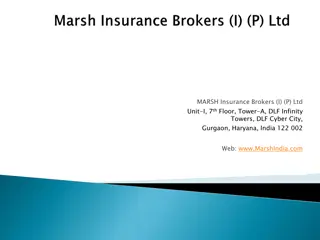
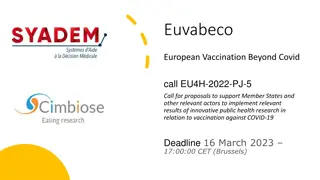
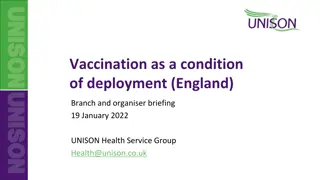
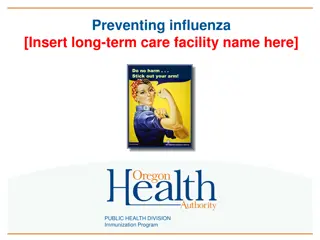
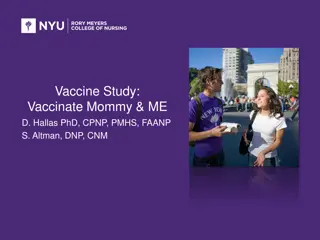
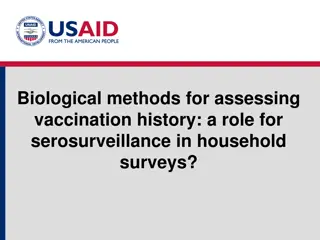
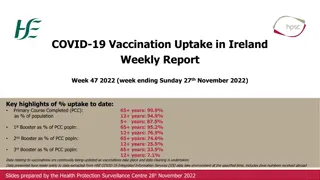
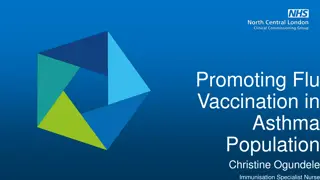
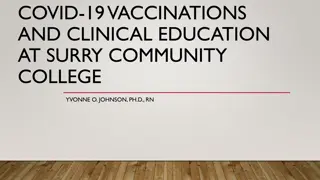
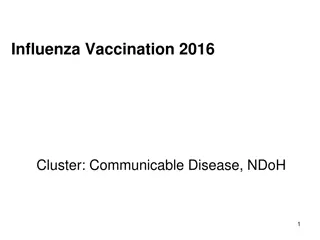
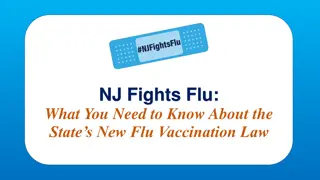
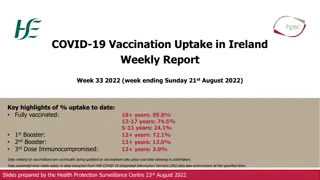
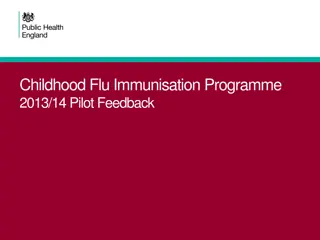
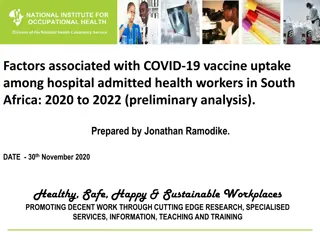
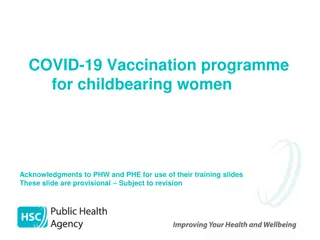
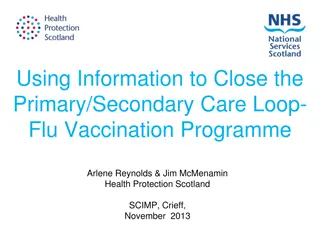
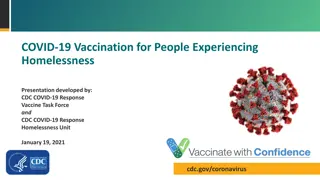
![Preventing Influenza at [Name of Critical Access Hospital]](/thumb/233818/preventing-influenza-at-name-of-critical-access-hospital.jpg)